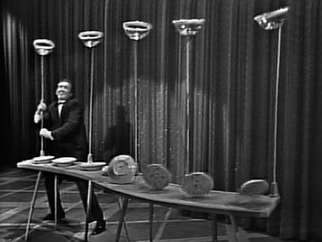In the last 10 years, I’ve had the privilege of sitting in deep conversation with hundreds of people working in Corporate America.
When the shields are down and the corporate façade comes off, almost everyone shares one secret in common: they fear failure, especially when operating in the pressure gap.
The pressure gap is the difference between your mental tools to handle a situation and the consequences of handling that situation poorly. When I gave a TED talk, the pressure gap was huge when I signed on. I had the skills to give a regular speech – but not the mental tools to give a TED talk. The pressure of a TED talk is MUCH more than a speech – and that pressure definitely triggered my fear of failure. It will been filmed and seen by thousands. Lots of other people have given them, so the expectations that the speech will be a really good one are much higher. If I had delivered the speech without developing my mental tools of staying grounded and present, I might have bombed. Thanks to several months of working on the speech itself and my mental tools, we closed the gap to a manageable level – I gave the speech I intended to give and didn’t faint on stage!
In my conversations with leaders, they talk about facing external pressures. But often it’s the inner dialogue that provides a window into the gap they are operating in:
- “I can’t say no because if I do, then I will lose my job and be living on the street.”
- “I don’t dare disagree with my boss because if I do, then s/he will fire me or even worse, cut me out of the good projects.”
- “I have to be perfect, because if I’m not, I’ve failed. (Or I’m worthless.”)
- “I constantly beat myself up.”
- “I don’t dare give other people important work to do. If they screw it up, it comes back on me. So I do it all.”
- “I can barely do the job I have and they are planning to give me more. If they do, it feels like it will be the straw that broke the camels’ back.”
- I’m constantly second guessing myself.
When I was a kid, we used to watch the Ed Sullivan show (I’m dating myself!) These guys would come on and start spinning plates, one after the other. When the plate stopped spinning, it would fall – so they had to move quickly from plate to plate to keep it spinning.
One day many years later, I was walking in to work at the bank where I had a big and ever-growing job. I said yes to everything. One of the best “compliments” given to me was “Lynn, you’ve done everything we’ve ever asked of you.” My version of success was to prove I could handle more and more and more. So on this day, in my mind I was running through everything I had to do that day and I almost stopped in the hallway to laugh at myself. I was a plate spinner!
My entire day would consist of running from one “plate” to the other to keep it spinning. And I deeply feared the crash of one or more plates on the floor. It never dawned on me to question my approach or whether it made sense to keep this many plates spinning, or whether I should ask for help. I would like to say that I completely shifted my mindset that day, never to be a plate spinner again. But let’s be real.
Not adding the additional plates would mean that I was not up to the job. And we couldn’t have that! My proving mindset would keep me playing above my head and eat me up from the inside out for a few more years.
It comes down to a fear of failure, fueled by the thought of being the only one who feels this way. It never dawned on me to question my approach or have a conversation about priorities or even grow my skills. Instead, being super busy made me feel good about myself, in a warped way. When asked how I was doing, saying “I’m so busy” really meant – “They need me! They trust me! They can’t live without me! Look at what a good person I am to be needed this much!” “I’m not failing!”
So instead of growing in my abilities, I spent all my energy on performing, proving and doing, making the pressure gap even wider. I took no time to recover, to reflect, or to improve myself. I’m lucky it didn’t kill me.
The pressures in Corporate America have gotten so much greater and more complex. (The same is true for the entrepreneurs I work with.) In my conversations, I’ve come to learn that almost everyone has some form of inner dialogue that fears failure. No one sees it in each other because we are really good at covering it up. We don’t dare let on that we are slipping.
We trade time with our loved ones, sleep, recreation and personal development rather than face the reality that we need to change our approach by improving our mental tools.
Here’s one thing I’ve learned: “they” won’t fix it for you. It’s hard work to change your inner dialogue. You can’t pretend your way to closing the pressure gap without paying an enormous personal cost.
You CAN build the inner strength and skills to handle more – IF you are willing to stop spinning plates, shift to an improving mindset and start working on yourself.
What’s the inner dialogue keeping you in the plate spinning game? How big is your pressure gap? Where are you looking for resources to help you close the gap?
As always, please share this with anyone you think would find it useful. And let me know how you are using what you learn!

